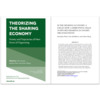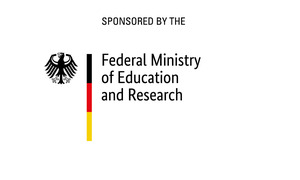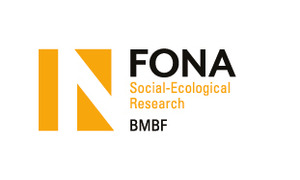Societal expectations regarding the aims of organizations have changed at the latest since the global economic and financial crisis in 2008. Established firms are expected to not only be economically successful, but to also act in a socially and ecologically responsible way. In addition, newly founded organizations aim to achieve social and ecological aims by using management practices and means.
Particularly interesting are thereby new models of sharing, because sharing organizations are active in various industries and organizational fields and because where they oftentimes cooperate or compete with established organizations. They thereby rely on the same set of management practices, but combine them in a way that allows them to achieve social and ecological aims. As a result, new organizational forms evolve.
Despite the existing diversity of these forms it is not yet understood, how these organizational forms evolve and what impact they have. Contributing to closing this research gap is the aim of this research project.
News
|
How do the fields of blockchain, cooperativism and sharing overlap? (30/07/2020)
Platform organizations that combine sharing business models, cooperative ownership structures and blockchain technology are proposed to be more just and sustainable alternatives to dominant platform models. While attributed a high potential, the spread and legitimacy of such models are low. In their current research, Tino Schöllhorn, Dominika Wruk and Achim Oberg from platforms2share explore the structuration of the three fields involved to explain the current state of the platform economy and its potential future development. They presented their work at this year’s European Group of Organization Studies Colloquium more... |
|
How is the sharing economy field structured? Dominika Wruk, Tino Schöllhorn and Achim Oberg address this question in their current publication (08/04/2020)
In their exploratory study, the platforms2share researchers find that sharing organizations receive attention, resources and legitimation from a „disruptive field“ of organizations including tech-media and venture capitalists – a field that initiates and support technological innovation which potentially disrupt existing fields and industries. So far, the field pays attention to dominant models in the sharing economy such as Airbnb or Uber. The authors published the chapter in the renowned series „Research in the Sociology of Organizations“. more... |
|
Plattformen für Nachbarschaftshilfe bündeln Solidarität in Zeiten der Covid-19 Pandemie (24/03/2020)
Nachbarschaftshilfeplattformen sind in Zeiten des Coronavirus ein hilfreiches Instrument, um Hilfesuchende und Hilfegebende zu vernetzen. Die Plattformen koordinieren Angebot und Nachfrage und sorgen dafür, dass Vertrauen zwischen Suchenden und Anbietenden geschaffen wird. (English Version below). more... |








